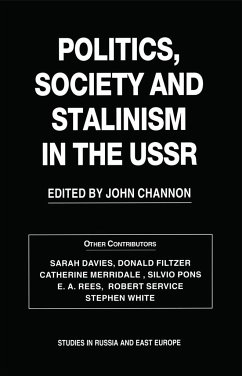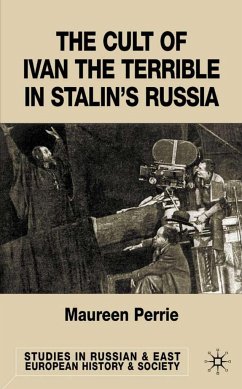
Writing the Stalin Era
Sheila Fitzpatrick and Soviet Historiography
Herausgegeben: Alexopoulos, Golfo; Hessler, Julie; Tomoff, Kiril
Versandkostenfrei!
Versandfertig in 6-10 Tagen
38,99 €
inkl. MwSt.

PAYBACK Punkte
19 °P sammeln!
This festschrift volume highlights the work and legacy of Sheila Fitzpatrick by bringing together outstanding historical work on the Stalin era. Covering topics such as the Soviet monopoly over information and communication, violence in the gulags, and gender relations after World War II, it offers a cross-section of some of the best work being done on a critical period of Russia and the Soviet Union.
Covering topics such as the Soviet monopoly over information and communication, violence in the gulags, and gender relations after World War II, this festschrift volume highlights the work and legacy of Sheila Fitzpatrick offers a cross-section of some of the best work being done on a critical period of Russia and the Soviet Union.














